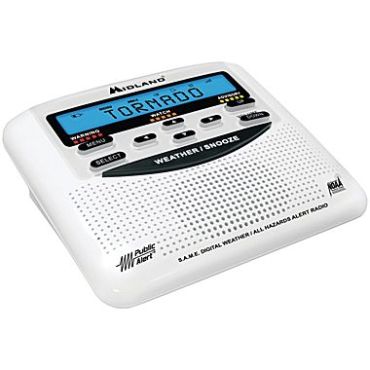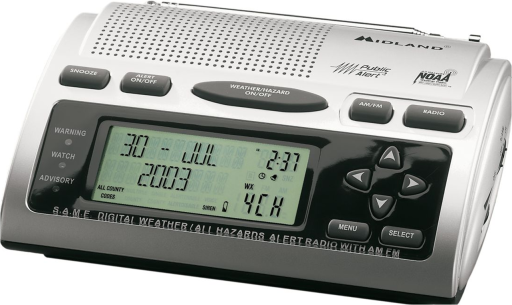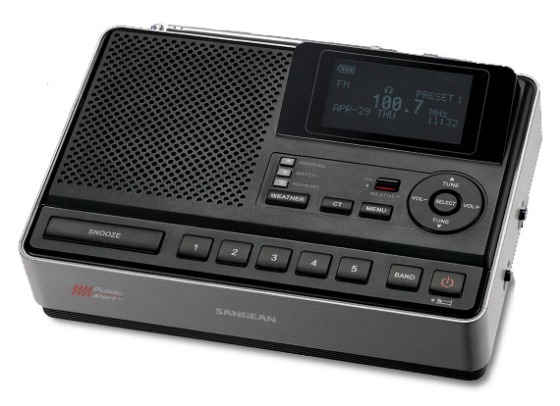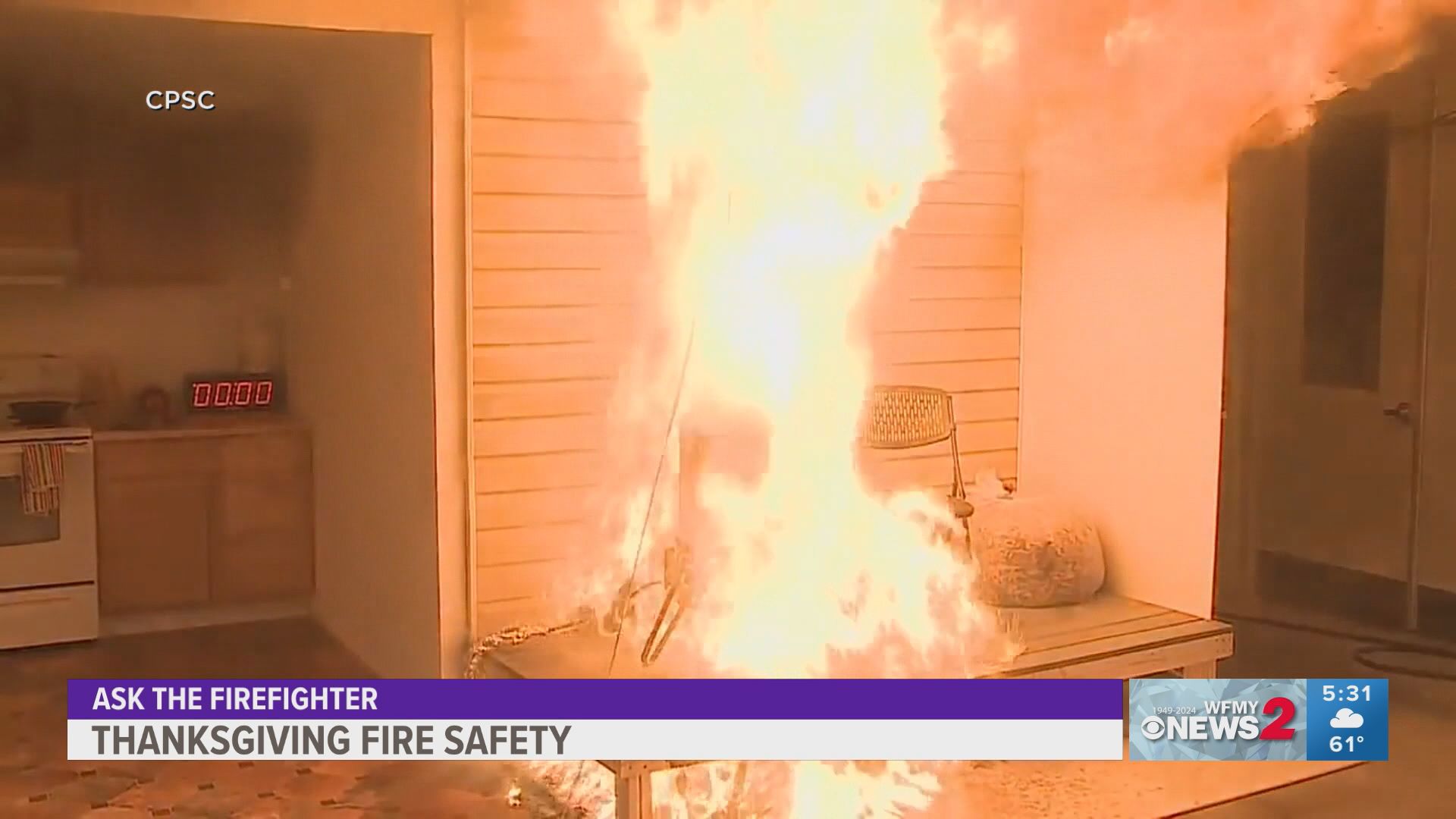GREENSBORO, N.C. --
A viewer recently emailed WFMY News 2 Chief Meteorologist Grant Gilmore and said that they were looking topurchase a Weather Radio as a gift and wanted to know whatkind he recommended.
Below is a response from Grant to anyone who is considering purchasing a weather radio:
First off I will say right off the bat that I recommend ANYNOAA (National Oceanic and Atmospheric Administration) Weather Radioand giving it as a gift is a great way to give something that couldpotentially save somebody's life.
The first thing you'll want to make sure of when purchasing a NOAA Weather Radio is that it is actually a "NOAA Weather Radio All Hazards"Weather Radio. I've seen some knock off 'Weather Radios' that advertiseas giving weather conditions, but don't actually alert you when theNational Weather Service issues weather alerts. The NOAAWeather Radio All Hazards (NWR)is a nationwide network of radio stations broadcasting continuousweather information from the nearest National Weather Service Office.For us in the Piedmont Triad that could be Raleigh, NC, Greenville, SC or Blacksburg, VA.The great thing about NWR is that it broadcasts warning and post-eventinformation for all types of hazards including natural events such asearthquakes, environmental accidents and public safety issues. Thereare seven frequencies that are consistent throughout all 50 states ,adjacent coastal waters, Puerto Rico, the U.S. Virgin Islands, and theU.S. Pacific Territories transmitted from 1,000 transmitters. So, onceyou own a NOAA Weather Radio you can receive alert information anywherein the U.S.
So, what NOAA Weather Radio do you purchase? Ultimately it is up toyou and how you think you will get the most out of it. Buy somethingthat you think you (or who you are buying for) will use. So often peoplebuy a NOAA Weather Radio and it just ends up sitting in the corner...collecting dust. A dusty, unplugged NOAA Weather Radio cannot and willnot save your life. The reason many people end up storing the radio inthe corner is because it alerts for every single weather alert seeminglywithin a 100 mile radius. This occurs when you purchase one of the moreeconomical radios. They are still effective, but they simply scan theseven frequencies for alerts. So, anytime there is an alert on anyone ofthe those frequencies you'll get it.
Enter S.A.M.E. Technology:
S.A.M.E. stands for Specific Area Message Encodingand if you have a Weather Radio equipped with this technology it willallow you to program the alerts to only sound for your area. I highlyrecommend paying the extra money for a radio that has the S.A.M.E.technology because this ensures that you only receive the alerts foryour area. These radios require a little programming, but most radioscome with good instruction manuals for how to program them. Here is alist of S.A.M.E. codes for North Carolina.
In addition to the basic Hazards Alert function, different radioscome equipped with an array of additional features such as, powercranks, solar power panels, AM/FM Radios, cell phone charges, etc... Themore add on's usually means the more $$ that you will end up paying. Butagain, buy something that you'll use!!
WHAT TO BUY:
You can purchase a basic Midland NOAA Weather Radio at your localcorner drug store. I know Walgreens and CVS usually have them. The basicMidland NOAA Weather Radio will usually cost around $20.
If you want to go for the S.A.M.E Technology of the Midland NOAAWeather radio it runs for around $50, but I have seen it on sale for aslow as $35.
I also recently came across this Sangean's compact Table-Top S.A.M.E.Weather Alert Radio. It's a little more expensive, but looks like itmight be worth it. This version costs around $70.
If you search online you can find radios at places like Radio Shack,Cabela's, Bass Pro Shop, Walmart and other outdoor/electronic stores.You can also find some good radios online at the Red Cross store. Youwill find a good assortment of radios online, but remember to keep aneye out for the NOAA Weather Radio All Hazards and if you prefer theS.A.M.E. technology.
I'm always interested to hear what type of radio people purchase andwhat they think of it after it has been used. So, let me know!






